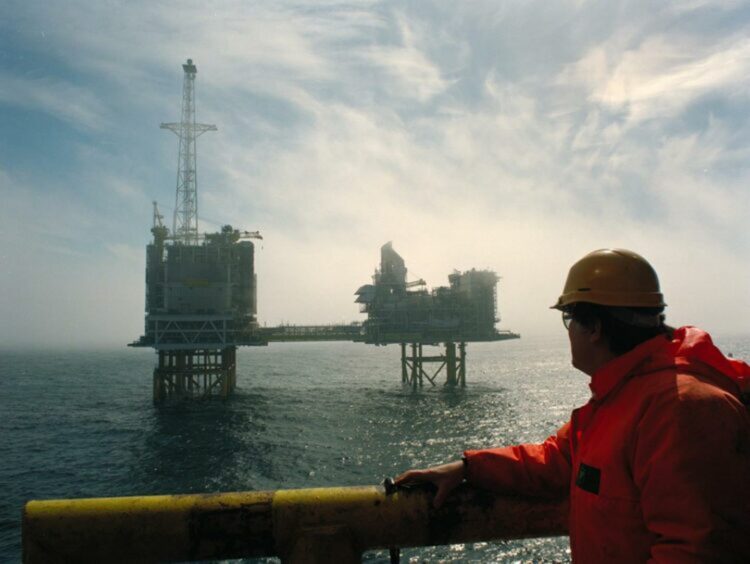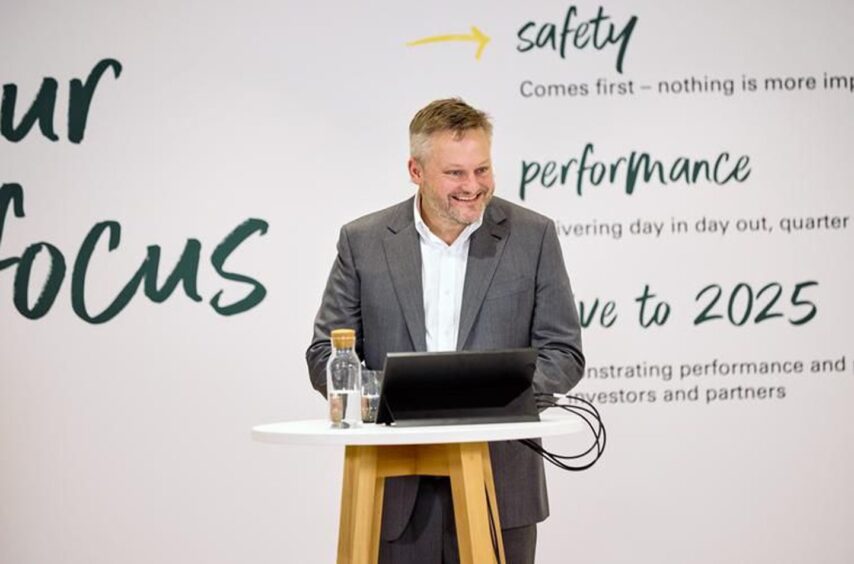
Energy giant BP (LON:BP) revealed profits have slumped 18% to $2.3 billion (£1.8bn) in its most recent quarter as it confirms a reduction in margins in its refining business and weak oil trading.
Analysts had expected the drop in net income which was 30% less than the same period last year.
The firm said upstream oil and gas production was up 3% for first nine months of 2024 vs 2023 and that EV charging sales increased 80% year-on-year.
Meanwhile, it said operating cash flow for the third quarter and nine months was $6.8bn and $19.9bn respectively, down from $8.7 billion and $22.7 billion for the same periods in 2023.
However capital expenditure in the third quarter and nine months was higher – $4.5bn and $12.5bn respectively, compared with $3.6 billion and $11.5 billion in the same periods of 2023. Third quarter and nine months 2024 include a $0.7-billion initial
payment in respect of German offshore wind.
BP shares have fallen 24% in the last year as Auchincloss seeks to scale back the firm’s renewable energy plans and focus on oil and gas to regain investor confidence.
In the firm’s update to the stock market, Auchincloss said the firm has made “significant progress”.
“We have made significant progress since we laid out our six priorities earlier this year to make BP simpler, more focused and higher value,” he said.
“In oil and gas, we see the potential to grow through the decade with a focus on value over volume.
“We also have a deep belief in the opportunity afforded by the energy transition – we have established a number of leading positions and will continue high-grading our investments to ensure they compete with the rest of our business. I am absolutely clear that the actions we are taking will grow the value of BP.”
The energy giant had warned of a slump in profit margins at their oil refining businesses – major parts of the firms’ overall income streams – earlier this month.
The slide in margins, also reported by Shell (LON:SHEL)which will unveil its third quarter results the day after the budget, comes partly as a result of a more general downturn in global demand for oil recently, across consumer and industrial sectors.
Brent crude prices remain about 10% down since the start of 2024.
Chief financial officer Kate Thomson said the firm was on track to meet costs savings targets and a $1.75bn for shareholders.
“In the third quarter, we delivered an underlying replacement cost profit of $2.3 billion while continuing to transform our business.
“We are in action to deliver efficiencies and are confident in achieving at least $2 billion of cash cost savings by the end of 2026 relative to 2023.
“Our financial frame is unchanged. Today, we are announcing a dividend of 8 cents per
share and a $1.75 billion share buyback as part of our $3.5 billion commitment for the second half of 2024.”
The UK energy major’s reporting season comes at a fraught time as the UK seeks to tax oil and has companies to fund its green energy plans.
For stock market watchers, BP’s profits meant it was on the “back foot”, however campaigners said oil and gas companies needed to pay their “fair share” towards the UK’s transition to clean energy.
John Moore, senior investment manager at wealth manager RBC Brewin Dolphin, said: “Against a backdrop of difficult trading conditions, this last quarter has not been plain sailing for BP and profit is considerably lower than it was this time last year.
“Oil price conditions, combined with the costs associated with simplification of the business has put BP on the back foot.”
Tessa Khan, executive director at campaign group Uplift said: “These profits are a good reminder that, despite complaints by the oil and gas industry that they are too heavily taxed, companies are in reality awash with cash. It is absolutely right that they pay their fair share while the UK transitions away from expensive oil and gas.”
Critics were also divided over BP’s lack of clarity over its future plans for green energy.
Reports have suggested BP will roll back from targets set by former CEO Bernard Looney but so far the firm has declined to clarify its position, giving rise to speculation.
Panmure Liberum analyst Ashley Kelty described the firm’s reticence as a “big negative” and chided the board.
In his morning note, he wrote: “While the results are positive, the big negative is that there was no commentary on strategy with investors hoping for a pivot away from the low margin renewables business and a return to focus on higher margin hydrocarbons –like all of the other majors.
“We remain unconvinced that the incumbent board have the courage to change direction and revitalise the strategy, as the majority of them were all lieutenants to Bernard Looney and had bought into his (value destructive) vision. Whether CEO Auchinloss will be given time to change his mind remains to be seen, but his seat is definitely warming up…”
Meanwhile, Khan believes BP has already given up on its targets: “BPs abandoning of clean energy and climate targets shows that it is operating with no regard for the public interest or the added costs that people in this country are now incurring, both on their energy bills and the impacts of climate change.
“Why should we have to pay for extra flood defences, or UK farmers be forced to cover the costs of poor harvests, when the companies driving these costs are raking in billions.”
Recommended for you


 © Supplied by BP
© Supplied by BP © Supplied by BP
© Supplied by BP